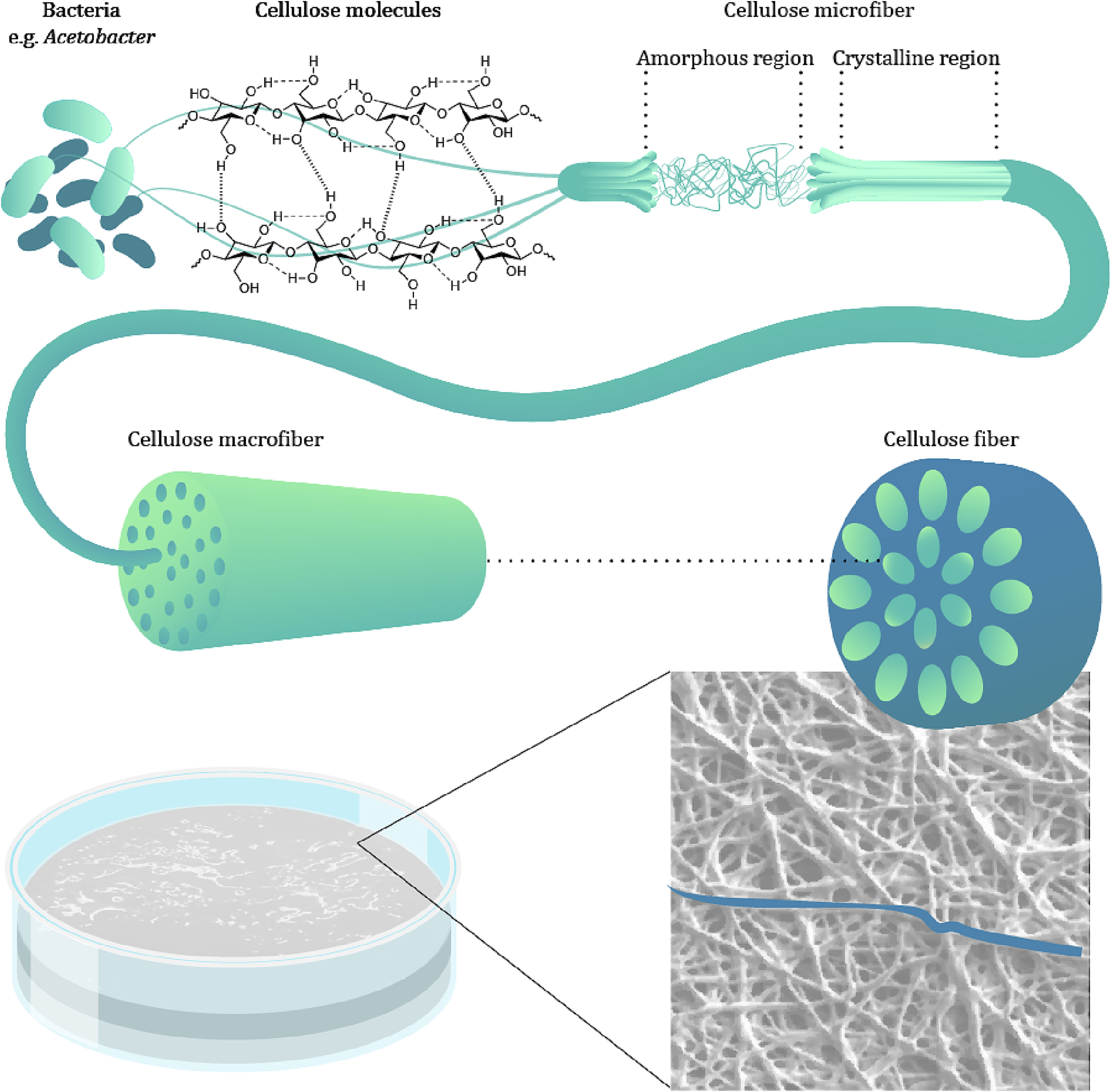Authors: Prilepskii A.Y., Nikolaev V., Klaving A.V.

Abstract
Bacterial cellulose (BC) is a chemically pure, non-toxic, and non-pyrogenic natural polymer with high mechanical strength and a complex fibrillar porous structure. Due to these unique biological and physical properties, BC has been amply used in the food industry and, to a somewhat lesser extent, in medicine and cosmetology. To expand its application the BC structure can be modified. This review presented some recent developments in electrically conductive BC-based composites. The as-synthesized BC is an excellent dielectric. Conductive polymers, graphene oxide, nanoparticles and other materials are used to provide it with conductive properties. Conductive bacterial cellulose (CBC) is currently investigated in numerous areas including electrically conductive scaffolds for tissue regeneration, implantable and wearable biointerfaces, flexible batteries, sensors, EMI shielding composites. However, there are several issues to be addressed before CBC composites can enter the market, namely, composite mechanical strength reduction, porosity decrease, change in chemical characteristics. Some of them can be addressed both at the stage of synthesis, biologically, or by adding (nano)materials with the required properties to the BC structure. We propose several solutions to meet the challenges and suggest some promising BC applications.